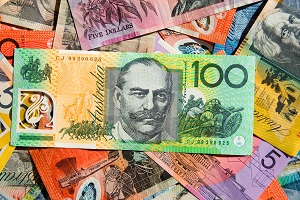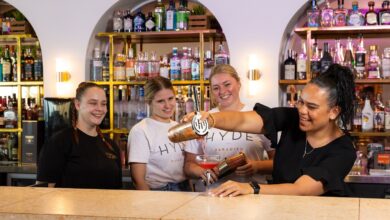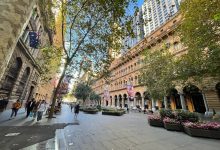
Mixed budget for tourism
Australia’s 2 million small businesses may have won a $5.5 billion boost in the federal budget but the tourism industry also got an unneeded whack.
In what could help some accommodation providers, small businesses will be able to claim an unlimited number of tax deductions for buying equipment (including cars) valued at less than $20,000 each. As long as it’s not stock, businesses can claim on virtually any item.
Equipment worth over $20,000 may also be claimed but will go into a pool and will be deprecated at 15 per cent in the first income year and 30 per cent each following year.
From July 1 this year, up to 780,000 small companies with annual turnover of less than $2 million will have their tax lowered from 30 per cent to 28.5 per cent.
The government will also allow a fringe benefits tax exemption from April 1 2016 and for small businesses with annual turnover of less than $2 million that give their employees more than one qualifying work-related portable electronic device.
Measures allowing small businesses to change their entity structure – such as a sole trader to a trust – without getting hit with capital gains tax have also been introduced also allowing them to immediately deduct legal and tax advice associated with starting a new business.
There is a $19 million package over four years aimed at helping employers take on unemployed job seekers.
However, international visitors on working holidays in Australia will be hit with higher income-tax bills.
Working tourists will lose the tax-free threshold, in other words, they will be taxed from the very first dollar they earn. Imposing a higher tax on already low-paid work will certainly be felt in a predicted decline in visitor numbers.
The change will mean these workers will pay 32.5¢ in tax for every dollar of income up to $80,000, significantly more than they pay at present: for example, someone earning up to $37,000 on a working holiday will pay about $12,000 in tax, instead of $3500. The main benefit of working tourists was never in their income tax — it was in their spending, productivity and willingness to take on jobs that Aussies seem happy to avoid.
It could now encourage more foreign workers to take unregulated cash-in-hand work or contra arrangements for accommodation.
On top of these initiatives the tax regime is to increase passport fees and charges designed to produce another $17.1 million for the government.
Gold Coast Tourism CEO Martin Winter slammed the taxation changes for foreign workers and said it would have a chilling impact on the industry which was worth $4 billion a year to the city.
“The tourism industry relies heavily on transient labour to fill jobs, especially in peak season, and sees this move as a retrograde step that will generate only a small amount of revenue, yet creates further reasons why the youth traveller should choose not to come to Australia,” he said. “I am really disappointed to see that passport fees are increasing and it is yet another impost on the industry…”
Tourism Accommodation Australia has welcomed the increase in funding for Tourism Australia and the Business Events sector, and praised the accelerated depreciation measures for small businesses, but believes changes to working holiday makers taxation arrangements and increases in visa charges will have serious negative effects for the accommodation sector.
TAA welcomed the increase in Tourism Australia’s 2015-16 budget to $137.3 million compared with $129.75 million in 2014-15. There will also be a strong push on Business Events marketing to promote Australia as a business events destination targeting New Zealand, the USA and China.
Carol Giuseppi, acting CEO of Tourism Accommodation Australia said, “Australia is experiencing its largest hotel expansion in two decades, and with the end of the mining boom, it is imperative that tourism and business events are targeted to create new demand. Australia has significant new convention facilities either opened or under construction, and given that it takes a number of years to secure major conventions and exhibitions, this is a crucial time to be marketing Australia’s business events capabilities to the world.”
Ms Giuseppi also welcomed initiatives aimed at small business, with the reduction in taxation and immediate tax deduction benefits for items under $20,000 likely to benefit smaller hotels, particularly in regional and remote areas.
However, regional and remote hoteliers would be particularly affected by the government’s change to tax residency rules from 1 July 2016. Working holiday makers would be disadvantaged from coming to, and staying in, Australia as a result of the decision to tax their earnings at 32.5 per cent from their first dollar of income.
“They not only contribute significantly to employment in the accommodation sector, they are also amongst the greatest advocates for Australian holidays back in their home markets. The backpacker of today is likely to return with their friends, families and credit cards in years to come. This is a regressive decision that will affect our industry at a time when the hotel industry is going to need access to larger pools of labour during its rapid expansionary phase.”
Increases to the visa application charge for a range of visas from 1 July 2015 would also have a negative effect on inbound tourism, said Ms Giuseppi.
The Australian Tourism Export Council welcomed the $36.7 million budget top up announced for Tourism Australia, saying it would “help the industry continue on its strong growth path”.
Meanwhile, the Tourism & Transport Forum said it was disappointed that the government has ignored industry calls to increase marketing funding in real terms.
TTF CEO Margy Osmond said no new money for tourism marketing meant Australia is fighting with one hand tied behind its back.
“Despite raking in more taxes than ever from visitors, including the passenger movement charge which will collect $1 billion in revenue for the government in 2015-16, funding for tourism marketing has failed again to increase and is falling further behind in real terms.
“Ripping more than half a billion dollars from the visitor economy with a new ‘backpacker tax’ is simply ridiculous,” she said, before adding, “Increasing visitor visa application charges is sending Australia in the wrong direction. “
The federal government has given something of an endorsement of Sunshine Coast Council’s airport expansion plans by pledging a slice of more than $26 million from the budget to ensure ongoing international air services.
Included in the announcement was almost $7 million in capital to develop permanent border clearance services. This also applies to Townsville Airport.
Light rail, the Commonwealth Games, critical road upgrades and cultural projects for the Gold Coast all missed out on new funding.

AccomNews is not affiliated with any government agency, body or political party. We are an independently owned, family-operated magazine.







